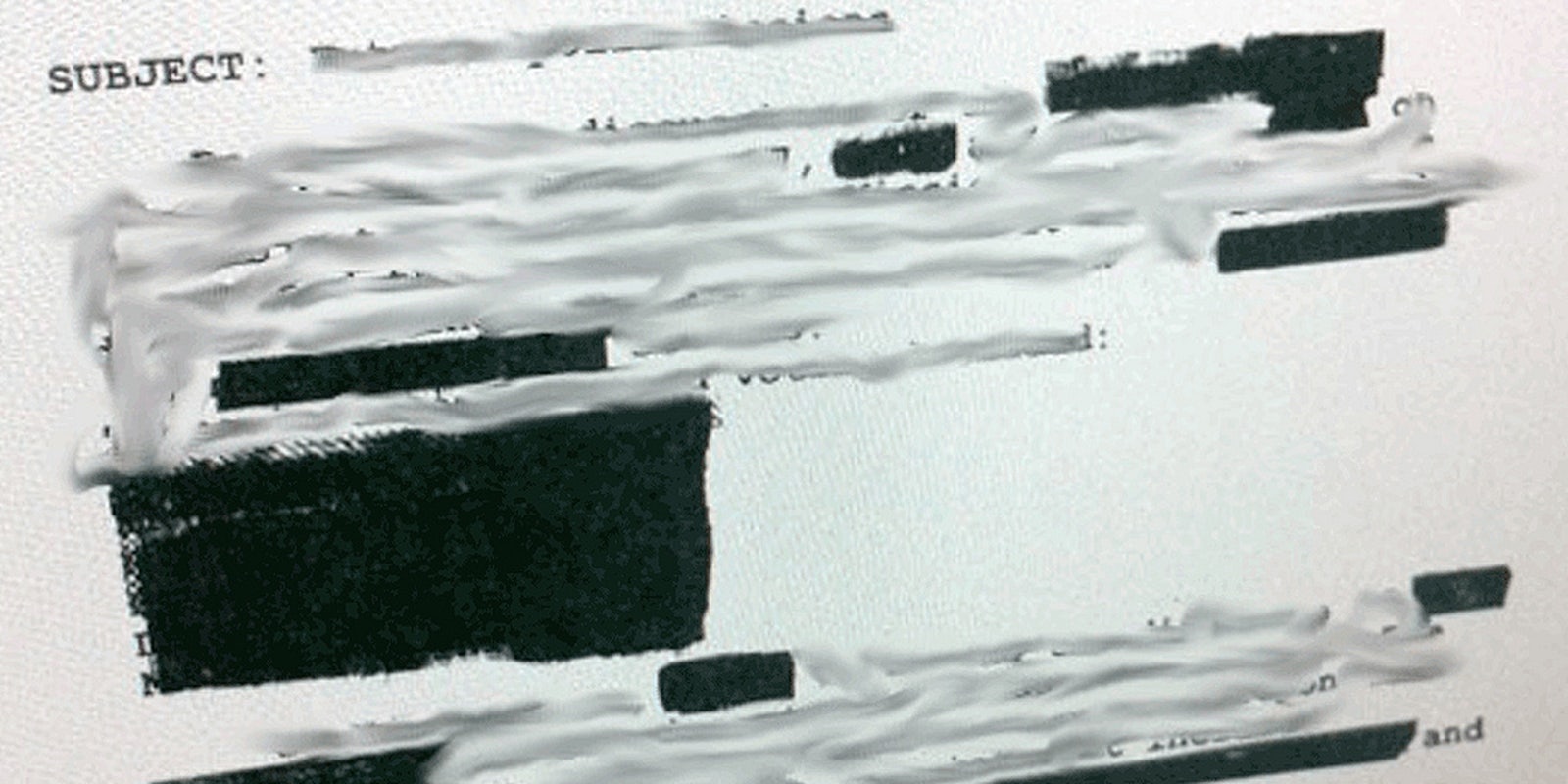The Department of Justice (DOJ) recently won a court case against an Internet company that wanted to let its users know exactly how often the agency files requests for their personal data. The company filing suit was never named, because the DOJ maintained revealing it would be contrary to the national interest.
But a redacted document filed by the DOJ in the U.S. District Court, Southern District of New York, was apparently not redacted enough. It contained one instance of the company’s name: Google.
“On June 6, 2013, the public’s already healthy interest in Google’s receipt of, and response to, national security legal process skyrocketed,” the document read.
Internet companies have been squirming and holding their hands over their mouths in a desperate desire to tell their suspicious users just what they’ve been legally required to do, what kind of data they have been (allegedly) forced to divulge about those users, but have been largely forbidden to do.
Google prosecuted the case in response to a “national security letter.” These NSLs, as they’re known, “allow the Federal Bureau of Investigation to demand account information and other data, but not the content of calls and emails,” according to the Wall Street Journal, which broke the redaction slip-up story. “They typically come with a strict gag order, and companies cannot even acknowledge they receive them.”
Once a judge in California ruled the law supporting NSLs was unconstitutional, Google challenged several of the NSLs it had received in court on that basis.
Despite this being not the first but the second instance in which Google’s name was inadvertently released to the public, the company is still forbidden by law to tell users how their information is being used.
H/T Boing Boing | Photo via opensourceway/Flickr


